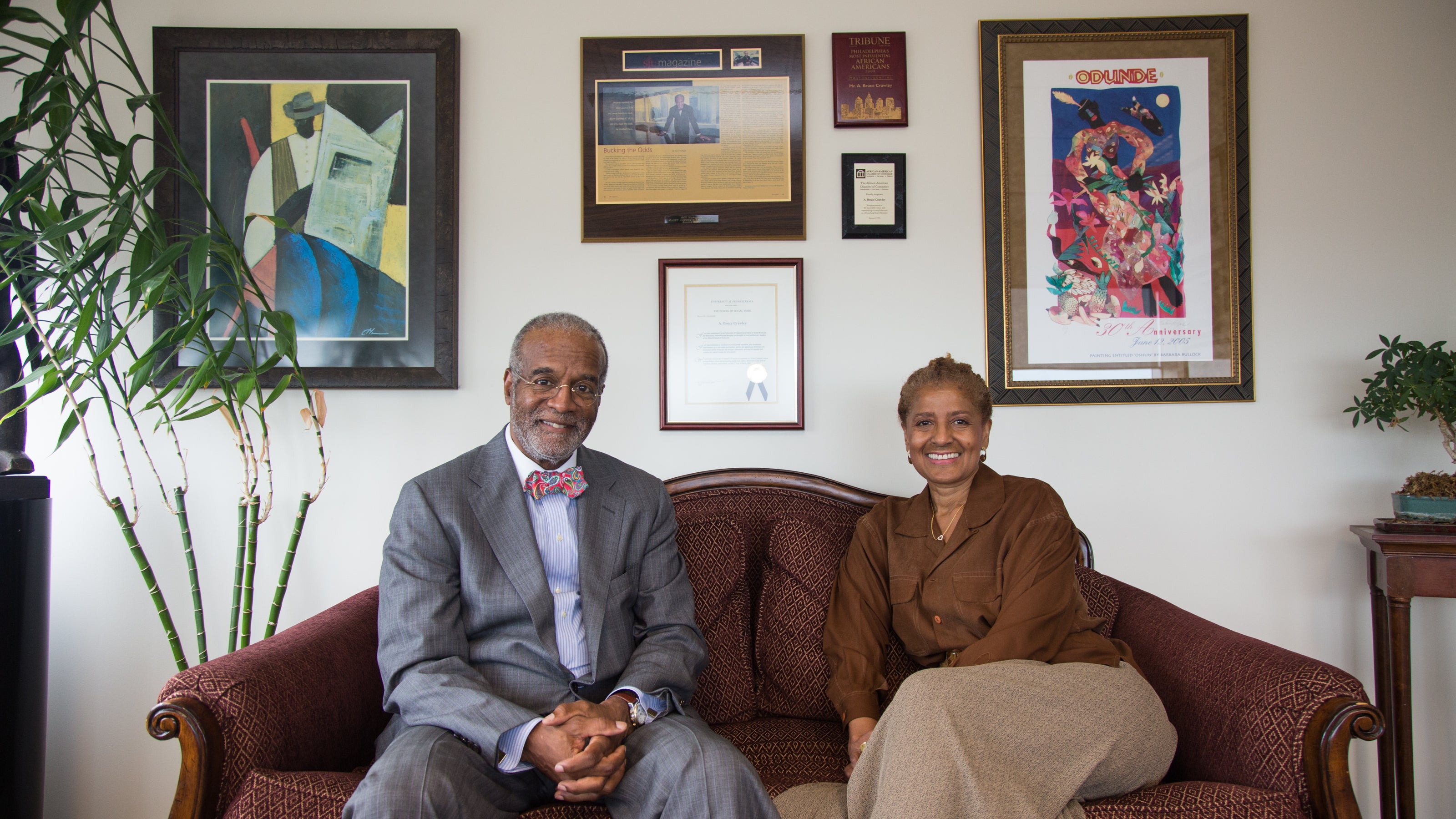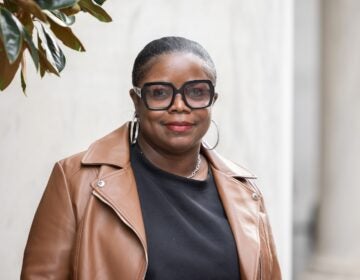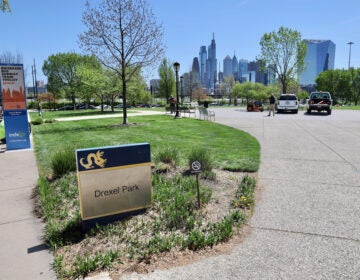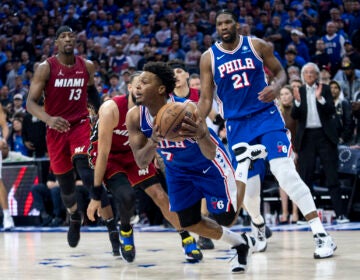The wheel deal: Gift to Philly man gives Ghanaians bicycle route to sustainability

Patricia Marshall Harris got her partner an unusual birthday gift this year: She started a foundation that will provide bicycles to needy people in Ghana and put him
Patricia Marshall Harris thinks of herself as a practical, not very creative gift-giver. For birthdays and holidays, she’d cook up partner A. Bruce Crawley favorite dishes, invite his family over, or maybe crack open some Champagne.
But as Crawley’s 70th birthday approached last March, Harris challenged herself with an intriguing question: What do you give a giver as a gift?
Her answer will help schoolchildren, farmers and entrepreneurs 5,000 miles away.
Harris created the African Bicycle Contribution Foundation, which aims to give 2,500 bikes to needy Ghanaians over the next five years. She named Crawley as its chairman and revealed her furtive philanthropizing at a surprise party for Crawley in March. The foundation will give its first bikes away in Ghana next week.
“Bruce is a giver, he gives all the time,” Harris said of Crawley, a longtime marketing executive who has served on boards and advocated for groups including the Urban League, United Negro College Fund, the Children’s Literacy Initiative and St. Joseph’s University. “I wanted this to be something that was going to change lives for people. I wanted a gift that would keep giving.”
To anyone who doesn’t know the couple, giving bicycles away in Ghana might seem like a random cause. But it started with one of Crawley’s hobbies: Bicycling. The Old City resident is an avid biker who typically pedals 15 miles a day through city parks.
Last year, Crawley briefly wondered how he might incorporate his passion for pedaling into charity, until other commitments distracted him.
But Harris, 56, his partner of seven years, quietly began researching the cause and figured Africa — a continent the couple plan to spend time during their retirement — made sense. She found Bernice Dapaah, a Ghanaian native who heads a company that makes bamboo bicycles in Kumasi, Ghana’s second-largest city. Partnering with Dapaah seemed fated.
Besides giving needy students and farmers bicycles, Harris and Crawley hope their efforts will boost the local economy by spurring Dapaah’s company to hire more people to manufacture the needed bikes, spawning a cottage industry of bike-repairers, and supporting local farmers who grow bamboo.
“In rural Africa, students often have to travel 15 to 20 miles roundtrip to school, people have to walk 45 minutes to fresh water, and farmers have long distances to travel to get their crops into the marketplace. They don’t have motorized transport, so they wind up having to walk,” Crawley said. “If bikes were available, it could really make a tangible difference, a readily recognizable difference, in the lives of people and their families, and the economy as a whole.”
Florence Torson-Hart, a Ghanaian native who emigrated to the United States in 2000, serves on the foundation’s board. Although she grew up in Accra, the capital city of Ghana, she has relatives who live in rural areas and face such challenges.
The first bikes the foundation will distribute will go to women and girls who walk miles daily to get to their jobs and schools, while shouldering the burden of work at home as well, she said.
“For the young girl that has to walk 5, 6, 7 miles to school, imagine getting to school, and you already are tired,” said Torson-Hart, a senior financial adviser at Merrill Lynch who heads the U.S.-Ghana Chamber of Commerce. “This will have a transformative effect.”
Torson-Hart and Harris, who serves as the foundation’s executive director, will travel this Sunday to Ghana, where they will give 30 bicycles to students and workers in Kumasi and Accra. Crawley, who had a work-schedule conflict, will remain in Philadelphia.
The couple also aims to persuade city lawmakers to name Kumasi a sister city, to further spur economic development and opportunities.
In the meantime, fundraising remains a constant priority. The foundation started with about $45,000 in donations but needs more to pay for all those bikes, Crawley said. (At $200 a pop, the bikes alone will cost half a million dollars.)
But they don’t anticipate any problems persuading people to donate.
“It’s not like contributing a check to cancer relief or even to Ebola, when you write a check and don’t really know where the money will go nor what the impact will be,” Crawley said. “When you make this kind of contribution, it results in a bicycle going into the hands of a student or a farmer. There are immediate, tangible benefits.”
With just six months until Crawley’s 71st birthday in late March, you might think Harris would already be mulling how to top this year’s gift.
But Crawley just laughed.
“This will not be topped. I never need another gift,” he said. “I’ve already crossed March 24 off my calendar for at least the next few years.”
WHYY is your source for fact-based, in-depth journalism and information. As a nonprofit organization, we rely on financial support from readers like you. Please give today.




